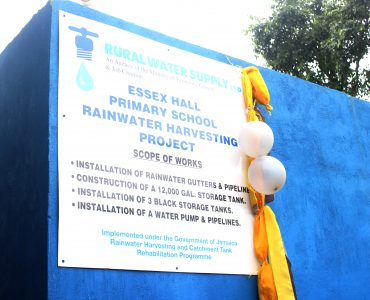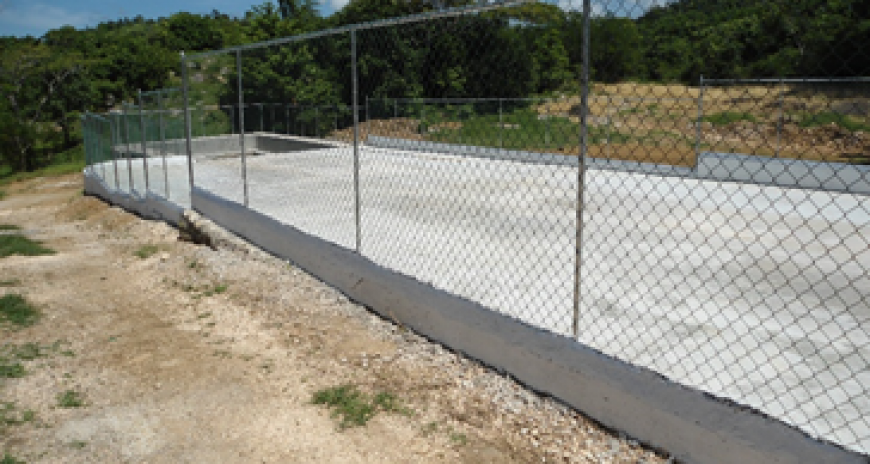Opening Hours
Mon - Thu: 8:30am - 5pm
Fri: 8am - 4pm
Contact
Tel: (876) 754-5485
Location
25 Dominica Drive, Kingston 5
The Towers 3rd Floor


The Role of the Rural Water Supply Limited
With consistently reduced allocations from Capital A Budget to the Ministry of Water & Housing for water supply projects since 1998 / 1999, it had been felt that CECL could not survive due to the reduced project portfolio of the Ministry. However, Rural Water Supply Limited repositioned itself to efficiently execute works for other agencies such as Jamaica Social Investment Fund, National Housing Trust, National Irrigation Commission and Housing Agency of Jamaica as well as selected Private Sector companies such as the major players in the bauxite industry in order to achieve some amount of budgetary independence.
The Water Sector Policy has as its twin objectives the expansion of access to water supply by all Jamaicans by 2015, as well as improved efficiency of the NWC and increased cost recovery. The objective of universal access pre-supposes huge investments in the sector, a substantial amount of which must be provided by the government for rural projects, which are largely not financially viable. The objective of reorienting the NWC to make it more efficient, commercially driven and customer friendly, as well as the emphasis on full cost recovery, dictates that in the new dispensation, NWC ought not to be saddled with rural projects which undermine its bottom line.
The policy, therefore, makes a clear distinction between the NWC providing water in an efficient and profitable manner and the provision of water for social and developmental purposes. The two objectives are somewhat contradictory and call for an institutional arrangement that recognizes and separates these two functions.

RWSLJA Institutional Arrangement
After exhaustive consultations with stakeholders in the sector and the public generally, the Ministry of Water, Land, Environment & Climate Change has agreed on an institutional framework, appropriate for the realization of the objectives of the Water Sector Policy.
The institutional arrangement proposed, recognized the need to separate the regulators from the providers. The Water Resources Authority will be managers and regulators of the water resources, while the Office of Utilities Regulation will be the economic regulator. The institutional arrangement further recognizes the need for the NWC, as the principal provider to be run as a commercial organization with a mandate for efficiency and good customer service, but also recognizes that the government must continue to play a critical role in providing water which might not necessarily be financially viable, but highly desirable from social, public health and environmental stand points.
Under the proposed arrangements, the NWC will continue to be the main service provider, but restructured to focus on efficiency and customer service. With the NWC focusing on its core business, the new arrangements call for a single institution charged with the planning and implementation of all rural water supply projects, for subsequent handing over to various service providers – the NWC, Parish Councils and community based organization, on terms which will ensure their sustainable operation.
The arrangement will have the following benefits:-
- It would eliminate the inefficiencies inherent in the current arrangement where a multiplicity of agencies are involved in the construction of rural water projects viz: the Parish Councils, Jamaica Social Investment Fund and community based organizations.
- This would streamline government’s development to the water sector.
- It would achieve government’s development objectives, without compromising the efficiency focus of the NWC.
- This institution responsible for planning and development of rural water schemes, can be held up as an important part of the Government’s Poverty Alleviation mechanism and thus attract international funding.
Of the options that could be considered as models for implementing a rural water development programme, it must be most cost effective to employ existing resources and institutional infrastructure. Since NWC in this model must stick to its core function and not be saddled with unviable schemes, only Rural Water Supply Limited could be considered as having the requisite organizational framework and range of skills to be quickly mobilized to take on the responsibility to design and implement a range of projects that could be contemplated under any programme of rural water development.
Rural Water Supply Limited was already structured as a project oriented organization. It already had management and staffing in place and its systems were and are specifically designed to deal with the procurement of the range of services that are needed to implement water projects.
